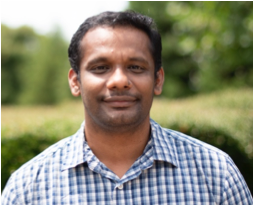Image-Based Crack Detection by Extracting Depth of The Crack Using Machine Learning
- 47 views
THESIS DEFENSE
Author : Nishat Tabassum
Advisor : Dr. Casey Cole
Date : July 11, 2022
Time 3:00 pm
Place : Virtual (Teams link below)
Meeting Link:here
Abstract
Concrete structures have been a major aspect of social infrastructure since the 1700s, so it has been used for centuries. Concrete is used for the durability and support it provides to buildings and bridges. Assessing the state of these structures is important in preserving the longevity of structures and the safety of the public. Detecting cracks in their early stage allows repairs to be made without the need to replace the whole structure, so it reduces the cost. Traditional methods are slowly falling behind as technology advances and an increase in demand for a practical method of crack detection. This study aims to review the practicality of CNN for evaluating damages from cracks autonomously. In addition, many previous methods of crack detection such as traditional manual techniques, image processing techniques, and machine learning methods are discussed. These methods will be investigated to assess the results and effectiveness of each method. Four primary cracks and sixteen secondary cracks of varying depths were chosen to train the CNN model for binary classification of whether a crack is present. A database of images of concrete without cracks was utilized to train the CNN model to recognize the features of images with and without cracks. Multiclass CNN was trained with a dataset of known depths of cracks to predict the severity of damages and cracks. Few studies have been done on depth prediction of cracks, so the aim of this study is to suggest XGBoost of a regression model as an effective method of in-depth prediction. vi Test results show that both the CNN models produced high accuracy in crack identification and damage zone classification. So, it is an effective method that can be used by civil engineers to monitor the well-being of the concrete to reduce labor and increase time efficiency. In addition, the XGBoost of a regression model produced exemplary accuracy in results for predicting the depths of cracks. This demonstrates the possibility of crack depth prediction. Predicting the depths of cracks is important in gaining insight into the health of the structure and can help determine the severity of the cracks and damage to the structure.

